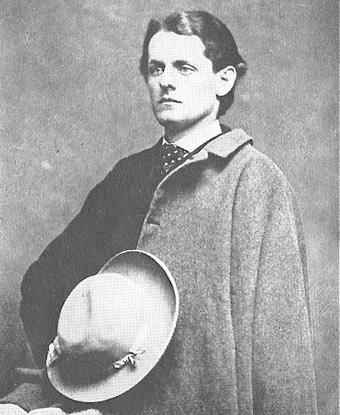Last updated: January 30, 2026
Person
Henry Kyd Douglas

NPS
From the Peninsula to Maryland: Douglas' role in the summer of 1862
Henry Kyd Douglas was born in Shepherdstown, Virginia, now West Virginia, on September 29, 1838. An 1859 graduate of Franklin and Marshall College of Lancaster, Pennsylvania, Douglas went on to study law in Lexington, Virginia, entering the bar in 1860.
When Virginia seceded from the Union in April, 1861 Douglas returned to his family home at Ferry Hill Place in Sharpsburg, Maryland. He soon enlisted at Harpers Ferry as a private in the Confederate Army's 2nd Virginia infantry; one of the units in what would come to be known as the famous "Stonewall" Brigade. Rising quickly through the ranks, Douglas was appointed to the staff of General Thomas "Stonewall" Jackson by the spring of 1862.
During the Maryland Campaign, Douglas served alongside General Jackson, lending support during some of the most heated engagements at Harpers Ferry, Boonsboro and Antietam. Douglas' family bore direct witness to the challenges of war and life in a border state when, following the Battle of Antietam, the house and outbuildings at Ferry Hill were used by both armies, in turn, as a hospital and housing for officers. Reverend Robert Douglas, Henry Kyd Douglas' father, was arrested and held at Fort Monroe, suspected of signaling Confederate soldiers across the Potomac River in Virginia, via candlelight from an un-shuttered window.
Injured no less than six times during the war, Henry Kyd Douglas survived to return to the practice of law in Maryland in his post-war, civilian life. A trial lawyer, Douglas was an active advocate in military and veterans affairs at a state and national level, helping to establish a permanent cemetery in Hagerstown, Maryland, for Confederate soldiers killed at Antietam.
